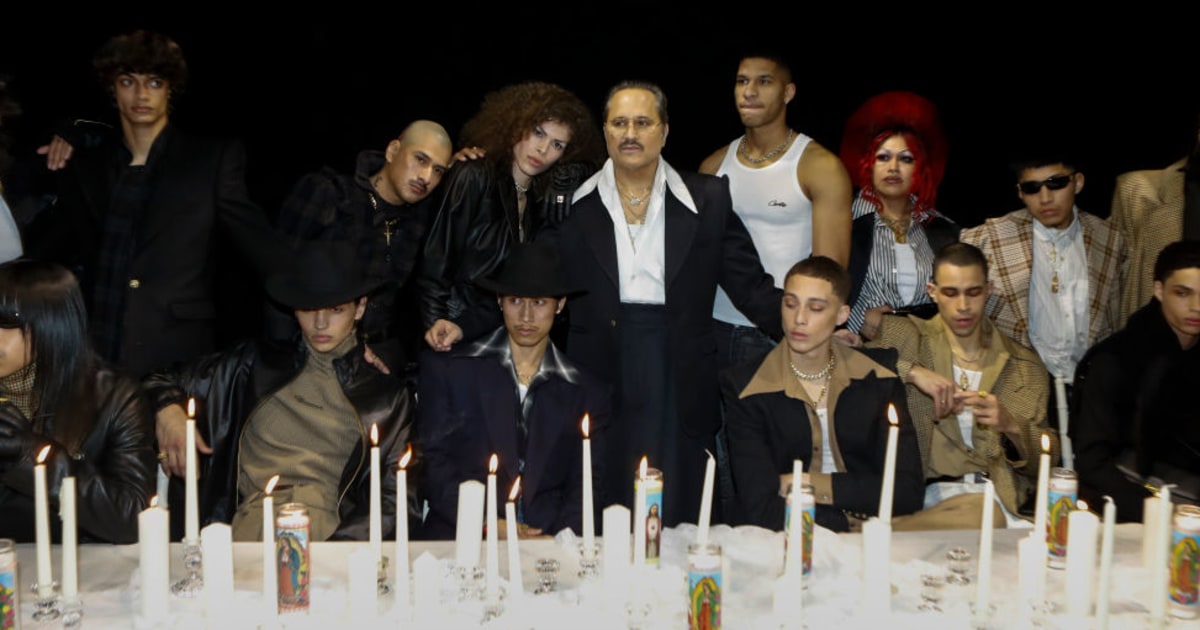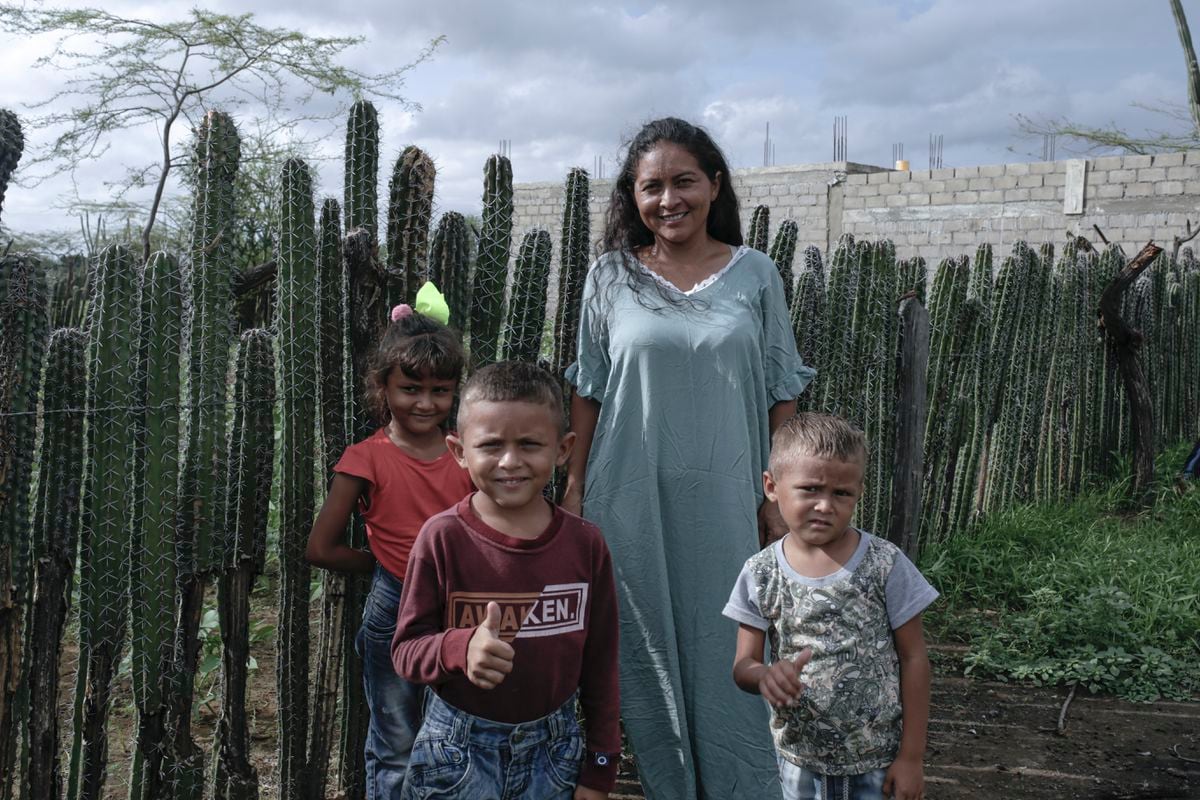By Débora Rey -
The Associated Press
Lucía Giménez still feels in his knees the pain that caused him to scrub the floors of the men's bathrooms for hours in an Opus Dei residence in Buenos Aires when he was just 16 years old and without pay.
She had joined the ultra-conservative order in the early 1980s in her native Paraguay with the promise of receiving a higher education to improve her living conditions,
but instead of math or history she was trained in cooking, cleaning, and other household chores
to serve in the centers, residences and retirement homes of Opus Dei.
Opus Dei (Work of God, in Latin) was founded by the Spanish priest Josemaría Escrivá de Balaguer in 1928. It is present in about 70 countries and has 90,000 members.
The group, which was widely favored by Pope John Paul II, who canonized Escrivá in 2002, and has a unique status in the church, reporting directly to the pontiff.
Many of its members are laity and women with secular and family jobs who seek to "
sanctify ordinary life,
" while other members are celibate priests and lay people.
From left to right Lucía Giménez, Alicia Torancio and Beatriz Delgado, former domestic workers of Opus Dei, in Buenos Aires, Argentina.Natacha Pisarenko / AP
Giménez was for 18 years auxiliary numerary, as women dedicated to housework and who comply with celibacy are called.
He assures that he
washed clothes, cleaned bathrooms and attended to members of Opus Dei on working days greater than the eight hours
established by the labor law and that the breaks were limited to the hours of eating and praying.
Despite the effort, he explains, "I never saw a banknote in my hands."
Now, at 56, Giménez, together with 41 other women, filed a complaint against Opus Dei before the Vatican for alleged labor exploitation, abuses of power and conscience.
Coming from Argentina, Paraguay, Uruguay and Bolivia they worked for the order in South America, Italy and Kazakhstan between 1974 and 2015.
[Six unvaccinated members of a Florida church die of COVID-19 and the priest organizes an event to immunize the rest]
“
I hated doing the baths and they always told me to do them.
I was sick of the pain in my knees, of getting down on my knees to do the showers, "said Giménez in a recent interview," I didn't see the money, they told us that it was going to a direct envelope to the center that I supposedly depended on. "
The woman assured that she accepted the conditions because “they don't give you time to think, to criticize what you are doing and you don't like it.
You have to endure because you have a total surrender to God ”.
He said that just this year he filed a collective complaint because before no one wanted to hear it.
“
You say Opus and they tell you 'no, it's very complicated
'.
I started talking to ex-numbers, there were several in the same situation ”.
Opus Dei indicates that it has not been notified of any complaint by the Vatican and that it has contacted the legal representative of women to "listen to the problems and find a solution to possible requests."
Exploitative conditions
The complainants have in common a humble origin.
They were recruited and separated from their families between the ages of 12 and 16.
In some cases, such as Giménez, they were taken to Opus Dei centers and residences in another country, circumventing immigration controls.
According to the lawsuit, the minors carried out their tasks under “manifestly illegal conditions: non-existent remuneration and no registration in the Social Security system, working hours that lasted more than 12 hours, with short rest periods;
without personal documentation or with retention of the same and other violations of basic rights ”.
They claim that priests and Numerarias - on a higher scale than the auxiliary numeraries - exercised "coercion of consciences" on women to strengthen their vocation to serve and dispel crises of faith, frightening them with spiritual evils if they did not comply with the supposed will of God.
Also that they
controlled their relations with the outside world.
Most of the women requested dispensation as the physical and psychological demands they were subjected to during their years of service became intolerable.
They maintain that they were left to their own devices, without money and
many needed psychological treatment after leaving Opus Dei.
Beatriz Delgado holds an undated photo of herself working in the kitchen of an Opus Dei house. Victor R. Caivano / AP
“It's horrible how you stay afterwards because you are totally out of the system.
Outside of everything, you don't know anything, ”Giménez described.
“I did not know what it was like to go to the bank with a card, I did not know how to do a mail order, I was afraid of the street.
I was panicking, "he added.
The complaint filed in September with the Vatican Congregation for the Doctrine of the Faith also points to a score of priests of the Prelature of the Holy Cross and Opus Dei for their alleged "intervention, participation and knowledge in the denounced events."
"
The hierarchy [of Opus Dei] is aware of the practices, it is not something invented here,
" said Sebastián Sal, lawyer for the complainants.
“It is an internal policy of Opus Dei.
The search for these women is carried out the same throughout the world ... after the complaint a group appeared in Mexico, in Spain, in France there was a case many years ago that went to labor lawsuit.
It is something institutional, it is not something that happens in Argentina ”, he added.
Opus Dei's response
However,
Opus Dei says it knows nothing of the complaint.
"We have no official notification from the Vatican about the existence of a complaint of this type," said Josefina Madariaga, director of Opus Dei's communication office in Argentina.
He said that worldwide
there are 4,000 auxiliary numeraries, of which 80 reside in Argentina
and that "all the people who have worked and are working on the work receive remuneration."
However, the spokesperson acknowledged that “in the 1960s, 70s, 80s and 90s, the entire society dealt with these issues in a more informal or familiar way.
Thank God we have all learned as a society that these types of issues have to be handled within another framework.
Opus Dei has made the necessary changes and modifications to accompany the current law ”.
But those who were auxiliary numeraries keep vivid memories of what happened to them.
"They
told me that I had to give my salary to the director and that everyone gave it ... it was part of giving to God,
" said Beatriz Delgado, who worked as an assistant numerary for 23 years in Argentina and Uruguay.
She was working as a paid maid when she approached Opus Dei at the invitation of a colleague.
"They convince you with the vocation, with that 'God calls you, God asks this of you, this is what God wants from you, you cannot fail God' ... They hooked me on that side."
After spending seven years in an Opus Dei center in Uruguay, Delgado "escaped" and boarded a ship bound for Buenos Aires.
A numerary was waiting for her at the port.
“
The next day he took me to a psychiatrist who started me on sleeping pills, antidepressant pills and others to stay awake during the day and be able to function.
I was plastered for 9 years.
She was one of their psychiatrists, "he said.
In the first years of service, Alicia Torancio did not question that she was forbidden to befriend other Numerary Auxiliaries.
Nor that she was allowed to read the newspapers once her superior checked that they had no news of sexual content, nor that she could visit her family only if she was in the company of another member of Opus Dei.
“They kept you emotionally immature.
The whole outside world was something harmful, "said the 46-year-old woman, who until recently had marks on her legs caused by sackcloth, an accessory with metal spikes that fits on the thigh and that members of Opus Dei use as penance.
Torancio became head of the kitchen of one of the Opus Dei residences and instructor of other auxiliary numeraries.
The demand plunged her into a depressing well for five years and after a suicide attempt she severed all relationship with the Order.
"They told me that [depression] was the cross that God sent me," he said in a broken voice.
"
It was brainwashed with white gloves
because they sold it to you through God, God's will, which is a father who generated guilt if you did not comply."
"They told me that (depression) was the cross that God sent me," he said with a broken voice.
As stated in the complaint, "any vocational doubt was addressed by the institution as a psychological or psychiatric problem with the consequent supply of psychotropic drugs to neutralize the will."
Regarding the psychological ailments of women during their tenure in Opus Dei, their spokesperson said that “what interests us the most is to receive each one of them.
If there is a traumatic experience or one that has left a wound, sincerely listen to them, understand what happened and from there correct what needs to be corrected and solved ”.
The accusations of the former auxiliary numbers are similar to those brought by some women from another conservative Catholic organization, the Legion of Christ, which actively recruited young women to become consecrated members of its lay branch, Regnum Christi, and to work in schools and others. projects under its orbit.
Women who left the order reported spiritual and psychological abuse;
that they were separated from their family;
they were told that their discomfort was "the will of God" and that leaving their vocation would be tantamount to abandoning God.
"I've been hearing one story after another for 26 years," says a priest about sexual abuse cases
Oct. 6, 202104: 45
Argentine-born Pope Francis cracked down on 20th-century religious movements after various religious orders and lay groups were accused of sexual and other abuses by their leaders.
Opus Dei has so far remained on the sidelines of controversies, although there were cases of priests accused of misconduct.
[A pastor creates a farm church in Texas to comfort newly arrived immigrants]
The complainants demand financial reparation from Opus Dei, which recognizes the abuses committed and asks for forgiveness.
They also demand "the pertinent corrective measures be taken so that these things do not continue to happen and they are disqualified from exercising any ecclesiastical office and those responsible for these acts are punished."
They ask for an economic repair
The lawyer Sal acknowledged that he recently met with the Vicar of Opus Dei in Argentina, Juan Llavallol, and that there was a willingness on the part of the Order to apologize publicly.
However, she clarified that the complaint continues
as long as the women do not receive financial compensation.
A spokesman for the Holy See did not immediately respond to a request for information on whether the complaint from the former Numerary Assistants had been received or if something had happened to it.
The lawyer Sal said that if the women's claim is not addressed, he will initiate a criminal complaint for "human trafficking, reduction to servitude, awareness raising and illegitimate deprivation of liberty" against Opus Dei in Argentina and other countries mentioned.
[A former cardinal is charged with sexual assault on a minor in the first court case against a high-ranking figure of the Catholic Church in the US]
Argentine law provides penalties of four to 15 years in prison for human trafficking
, a crime whose punishment is aggravated if it is committed by a minister of worship.
The criminal action prescribes after 12 years have elapsed since the crime ceases.
“They say that 'we are going to help poor people', it
is a lie, they do not help, they keep [the money] for themselves
”, lamented Giménez, “it is very important to achieve some justice, it is incredible that they do not lift a finger to ask your forgiveness and give you what corresponds to you ... That would be worthy of a Christian being, of a person who prays every day and has Mass every day ”.







/cloudfront-eu-central-1.images.arcpublishing.com/prisa/2XWZK2SNNVHNTOU6DYROGV3XVI.jpg)

